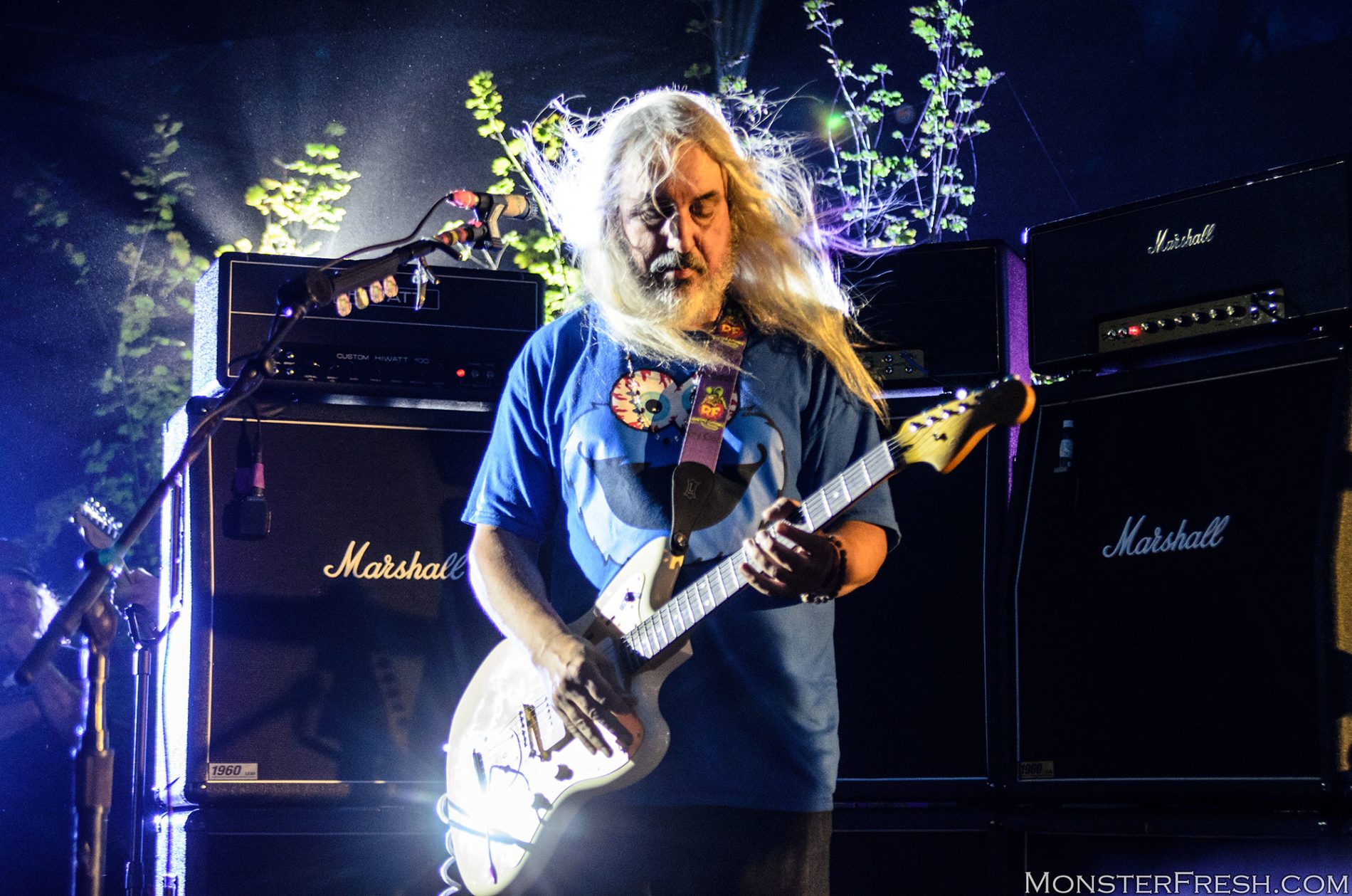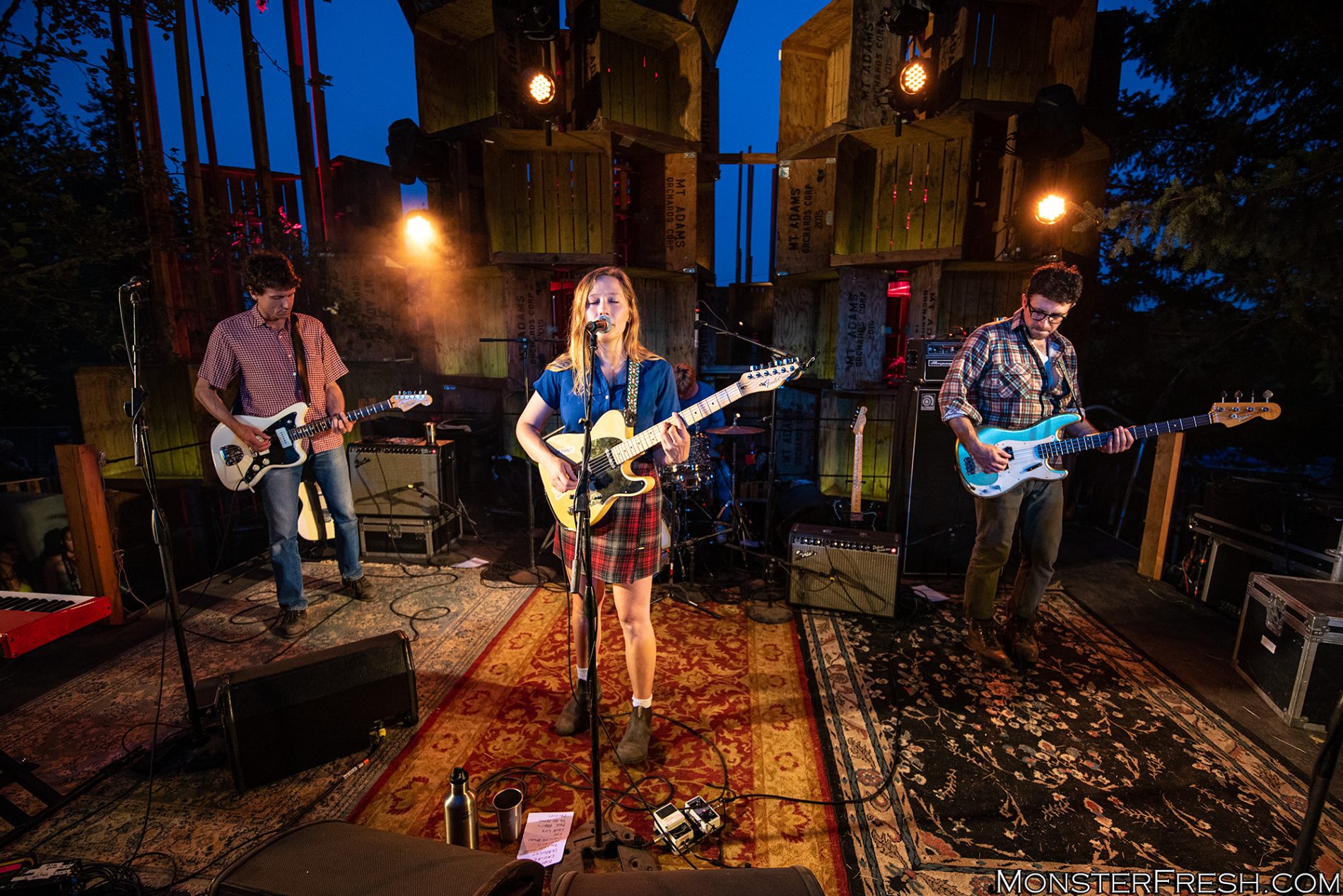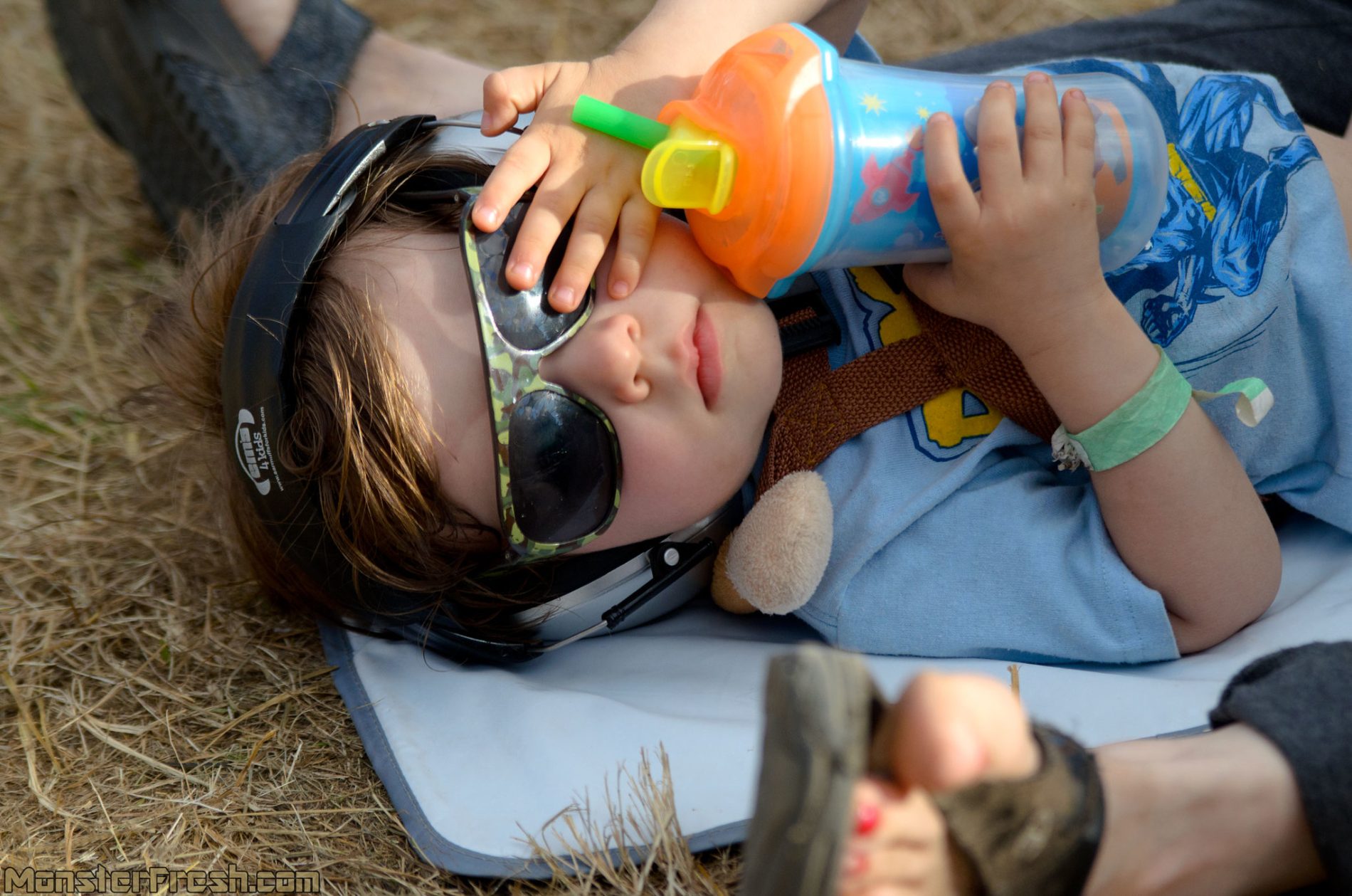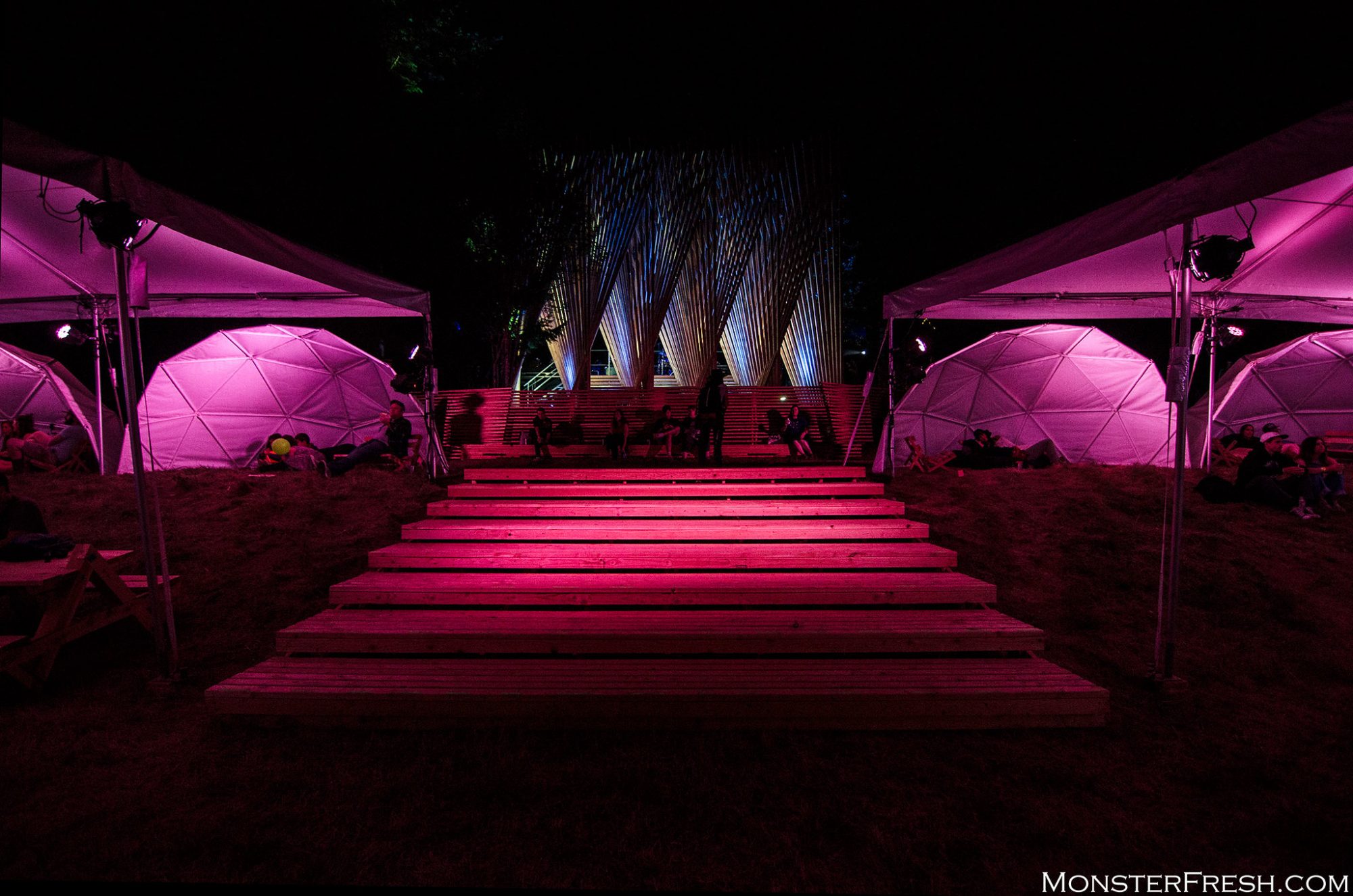What Pickathon Means To Me: A “Love Thesis” About The Greatest Festival We Ever Seen
A thorough breakdown of how the Oregon Festival earned our undying love and deserves yours too

The first-ever Pickathon Music Festival was held 25 years ago, but the event didn’t really find its footing until 2006, after relocating to an organic farm owned by couple, Sherry and Scott Pendarvis in Happy Valley, Oregon. There’s an indescribable magic about the Pendarvis family’s 80-acre property, which has become so synonymous with the annual event that it’s difficult to imagine it being hosted anywhere else. Fortunately, it doesn’t look like we’re going to have to worry about that for a while. Earlier this year, organizers had their permit renewed with the city for another 10 years, effectively dispersing a cloud of uncertainty that had been looming over the festival for quite some time.
Over the years, an increase in urban development has threatened the location and, with its permit running out, there was a fear that last year might be the last time Pickathon would be held on the farm. In February, the COHV (City Of Happy Valley) planning commission held a hearing that brought out Pickathon founder, Zale Schoenborn and others to plead their cases for why an annual music festival should continue in their little town. Leading up to the hearing was a letter-writing campaign that provided those of us who couldn’t attend in person the opportunity to express the importance and value of Pickathon to us. I took things down to the wire, sending my letter in at the last possible moment. Further staying on brand, it was overthought, overwritten, and I over shared. In response, I was sent the message, “Thank you for your email. It will be presented to the Planning Commission for consideration.” Whether or not it was ever read, or shared, I don’t know, but it was documented to some degree. I was later mailed a form letter acknowledging that I had reached out and informing me of the city’s decision to renew the permit for another decade. Of course, by that time, the decision had already been widely reported, but I still appreciated the gesture.
This year’s festival is less than a month away, so I was just putting together a list of recommended artists/set times/stages for a new post I’m writing. While searching through Pickathon-related emails, I came across the one that I wrote to the COHV planning commission and quickly realized that nothing I’m going to write or have written over the last 12 years since we began covering it for this site would provide a better case for why we feel someone might want to attend Pickathon or what it has to offer. The email that I sent is dense because it’s thorough. It was written from desperation and the possibility of losing something I truly care about. Granted, it’s a potentially nauseating and gushing tribute, but the sentiments expressed within it are genuine. It’s me unpacking my guts and allowing them to spill all over the trail, hoping that something redeeming might be gleaned from the confessions and entrails.
I know this might all come across as a little cornball and hacky, hence me titling this post like an elementary school report about my summer vacation. In essence, this is a love letter to a music festival and the land that supports it, if not a dissertation on everything that I’ve discovered and come away with after a decade’s worth of research and attendance. It’s a love thesis.
You can read it below.

To whom it may concern,
I am reaching out to express my overwhelming desire to have the Pickathon festival continue being held at Pendarvis Farm. Pickathon is an essential part of my year and its location in Happy Valley has become woven into its fabric. The farm is such an integral part of the festival that it’s impossible to imagine it taking place anywhere else. To the uninitiated, the idea of a music festival needing to make adjustments and relocate, or possibly even ceasing to exist, may not seem like a dire circumstance, but to the community that has come to know, love, and depend on its existence to get them through the year, the prospect of Pickathon disappearing is nothing short of devastating. I say this with 100% sincerity and without hyperbole.
As a Seattle resident, I’m not qualified to speak directly about Pickathon’s impact on the local community or economy, but I am hoping to offer my own perspective and experiences, as well as to relay some of the countless others that have been expressed to me over the last 10-plus years since I began attending the festival. I apologize in advance for the breadth of what I’m sending you, but if there’s ever been a time to pour my soul out about what Pickathon means to me and my family, then it’s now. Either my words will be part of a successful plea to renew its permit or this will simply be an ode to something that I have truly loved and will keep with me, in one way or another, going forward.
In 2013, I began traveling down to Happy Valley as a journalist photographing and doing extensive writeups about Pickathon. Over that time I have faced the same difficult task year after year of attempting to present something that encapsulates an experience that I’ve yet to find anything comparable to. In recent years, Pickathon has begun advertising itself as an “experiential music festival;” a direct acknowledgment of the fact that it is much more than the music that it books. It’s something much greater that NEEDS to be experienced to fully understand.
Before my first Pickathon, I had already become jaded about summer music festivals. I was accustomed to large-scale corporate monstrosities erected in blazing temperatures, overcharging for junk food and necessities like water. The versions that offered camping operated like glorified frat parties overrun with belligerent drunks and unchecked aggression. Individuals seemed more focused on crossing the personal boundaries of others than any culturally based or enriching experience. What struck me about Pickathon has just as much to do with what it isn’t, as what it is. Free fresh flowing water. No trash or single-use packaging. Local food vendors and microbreweries. I was diagnosed as pre-diabetic just prior to attending last year and I was not only able to find something to eat, but I ate well. Despite the unavoidable heat and dust, everyone is always in surprisingly good spirits and is caring toward one another without an ounce of contrivance. The fact that it all takes place in a town called Happy Valley couldn’t be more perfect. There’s another place that has self-appointed itself as “the happiest place on Earth,” but there are thousands of attendees who make the trek to your city each year who would be willing to differ.

I always said that I would never take my kid into a grimy environment like a music festival, but based on the assurance of his aunt who attended previously, our son came with us to Pickathon that first time. He was only 2 years old and the experience went shockingly smooth. We camped in a section designated for families and, although he danced at times, my son was much more interested in the horses on the farm. Because of the cap they put on the tickets, it wasn’t overly crowded, either. My wife assists me in my coverage and we spent several years after that going by ourselves, staying up and attending the more raucous sets late at night. It was our annual time together. Eventually, we brought our son along with us again, when he was a bit older, and it was a completely different experience. Since 2019, Pickathon has become all about the children for me and I love it. Because of how thoughtful and pro-family the organizers are, there’s an entire festival for children within the larger festival. We’ve sent our son off with the Trackers Earth camp that is onsite so he could experience such activities as nature walks and archery. As he’s grown, he’s become part of his own little crew of kids that attend every year. They busk, sell their wares and are upfront at every show, often interacting with the musicians who always seem so pleased and envigorated by an environment that is drastically different from anywhere else they have to perform. One of the most beautiful aspects is watching these experiences influence, inspire, and impact a new generation in real time. For us and many others, this is the big family vacation we plan for each year.
Along with the inclusion of visual art and now comedy, the music lineup is so eclectic and diverse that I’m not sure there’s anything else quite like it. While other music festivals may offer variety, attendees still tend to stick to the artists that they came for. I’ve never witnessed another situation where people are not only open to seeing acts that they have zero knowledge of beforehand, but they fully engage with the music. The representation of non-anglo-saxon/male-centric acts and music from around the world is another thing that can be tricky to address, at times. While the attention to equity and social conscioiusness is noteworthy, commendable, and important to recognize, I personally never see a band from Zambia or an LGBTQ+ artist strictly to check a box or solely because of some need to support them; I do it for the much less noble reason that they are simply amazing acts performing at the time — the same reason they were booked in the first place. I never want to write anything that could read as reductive about these artists, because they are consistently mindblowing and never just included for optics. That said, the representation of such varied cultures and backgrounds is beautiful, and seeing them so fully embraced is validating on numerous levels.
The Pendarvis Farm plays such an important role in facilitating all of this, not only because of the generosity and disposition of the family, but in the way that everything has been carefully integrated into the layout. Everything is designed to make the most of the natural landscape, using the shade of the trees and calculating sun positions throughout the day to best utilize it. Most festivals have large stages and unsightly scaffolding, while Pickathon provides an opportunity to see performances on stages in the woods with organic structures crafted from materials like branches. The PSU School Of Architecture’s involvement with designing a stage each year that is built around sustainability, while reusing the materials after the festival for projects like temporary housing for veterans or domestic violence victims has always blown my mind. We once camped next to the professor in charge of the program who spoke to us about how it’s become part of their permanent curriculum. The impact of Pickathon has reached and decidedly affected the community at large. Not only has this program garnered the school awards, but so much of what Pickathon has done regarding sustainability and design has inspired, if not been adopted by, other festivals. I’ve witnessed this on a very tangible level.

I’ve seen other music journalists that I’ve known outside of Pickathon attend for the first time and ask me if it was all real. Like myself, they have returned as often as possible. World-renowned musicians who have performed around the world have confided to me that this is the best festival they’ve ever played — not much of a secret, considering how many others have openly expressed these very sentiments on stage during their sets. A number of musicians have planned their years around being able to perform and/or attend Pickathon, just as so many of us plan around it ourselves. I watch otherwise jaded, generally unimpressed music journalists and musicians alike show up like giddy little children time and time again. I’ve never seen another festival where the founder is so cordial and engaging to everyone, but I’ve seen Zale Schoenborn dancing with his wife to soul music and gushing with pride about watching his son experience his first concert the day before. He created and molded this festival into his own utopia built on the belief that the rest of us would understand and appreciate this vision — perhaps, even need it. The Pendarvis family and their idyllic property have played an immeasurable role in bringing that vision to reality.
The biggest downside of Pickathon is that we have to return to our regular lives afterward. For one extended weekend a year, we live in a world where we are actually treated with value by a festival, which, in turn, shocks and prompts us to treat each other better, as well. The sustainability and environmentally friendly practices are obviously important, but Pickathon presents them in a way that proves they are actually easier to participate in than not to — something I NEVER expected. I know that it might sound farfetched, but Pickathon genuinely makes us better people. It’s the most naive, delusional-sounding statement I could make, but the small community that assembles on Pendarvis Farm each year reminds us that we could all be living in a better world, treating each other and our environment a lot better, if it wasn’t for the anxiety-inducing rat race and corporate-driven demands of everyday life working to derail that. The best part is that it is all born so organically from the environment without any need to be spoken. There is no preachy element to any of it, no new-age spiritual mission statement to subscribe to. It’s simply about the joy of discovery and sharing. It’s about a need to protect it. It’s the fact that this place and this time matter so much to the individuals that everyone’s priority becomes about sustaining that environment of respect and inclusivity until we are forced to leave. It’s self-regulating and, hence, self-sustaining. And again, the most encouraging thing about it all is also the most depressing: it honestly is the easiest, most automatic thing to participate in. If we all had our basic needs met, weren’t feeling crushed under the weight of society, felt like the larger community had our backs, and recognized that we’re all better off when we’re all better off, we’d just operate in a way that’s more beneficial to the whole without even thinking.
I’m aware it’s likely counterproductive to spill all of these ramblings out in an email like this; being succinct and to the point is probably a lot more effective. That said, I’m only writing this letter because I’m passionate about the cause. So many of us live our lives waiting for our next break, whether it’s weekend to weekend, a regular hobby-related function, or something a little more extravagant. I suffer from crippling anxiety these days and I spend my year planning for a return to Pendarvis Farm. That’s the river stone that I stretch my legs to reach. As one friend who covers the festival for another outlet once expressed to me, Pickathon is the one music festival that is rejuvenating. Pickathon represents something life-changing for so many people each year, and for many of us, it’s also life-sustaining.
If you’ve read through even a fraction of my ramblings, then I appreciate you for it. By renewing the permit, you’ll be doing a lot more than just allowing a bunch of hooligans to invade your town to get weird in the woods, you’ll be providing something that offers respite to thousands of people who could use this sort of optimism right now.
Thank you for your time,